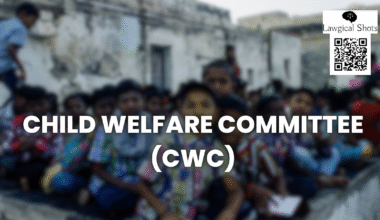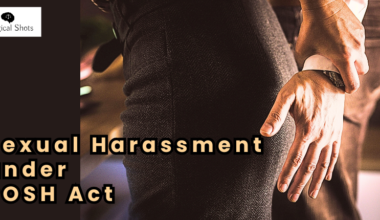I bet all of you must have seen dolls and toys being traded for money, to sew some good childhood memories for kids. But have you seen those kids being traded for money? Or the adults who had once been kids, but not being sold for exploitation. Sounds disgusting….Right? Well, it is! But there are people around use who are involved in such heinous acts to make more money. The Bharatiya Nyaya Sanhita considers trafficking of humans an offence, and those involved are punished. Let us dig deeper to understand how the offence of human trafficking under BNS 2023 has been defined.
Provisions related to Human Trafficking under BNS 2023
Section 143 of the BNS 2023 majorly addresses the definition of human trafficking and its punishment. There are other crimes under BNS wherein human trafficking has been mentioned. So first, it is good to understand what constitutes human trafficking. This will help understand the related offenses or provisions.
Human Trafficking under Bharatiya Nyaya Sanhita 2023
“143. Trafficking of Person – (1)Whoever, for the purpose of exploitation recruits, transports, harbours, transfers, or receives a person or persons, by—
(a) using threats; or
(b) using force, or any other form of coercion; or
(c) by abduction; or
(d) by practising fraud, or deception; or
(e) by abuse of power; or
(f) by inducement, including the giving or receiving of payments or benefits, in order to achieve the consent of any person having control over the person recruited, transported, harboured, transferred or received,
commits the offence of trafficking.”
Comment: The Sub-Section 1 to Section 143 majorly defines what constitutes human trafficking under BNS 2023. It includes criminal acts of recruitment, transportation, harbour, transfer or receiving of one or more persons for exploitation. The mode of such acts could be using threats, force, coercion, abduction, inducement, abuse of power, fraud, etc. Committing one of the previously mentioned acts using one of the aforementioned modes constitutes the offence of trafficking.
“Explanation 1.—The expression “exploitation” shall include any act of physical exploitation or any form of sexual exploitation, slavery or practices similar to slavery, servitude, beggary or forced removal of organs.”
Comment: The definition of trafficking focuses upon the term exploitation, which is addressed through the explanation here. It clarifies that the exploitation could be physical or sexual. It could be slavery or similar practices like servitude, beggary. It may also mean removal of a person’s organs by using force. The reason for such a wide interpretation of exploitation is the reality. Human trafficking in India or abroad could be done to force a person into prostitution; it may be to avail easy or cheap labour; it could be done for the dirty business of organ transaction. The level of exploitation and the human trafficking definition under BNS reflects upon the pathetic picture of how humans can themselves turn into trade products.
“Explanation 2.—The consent of the victim is immaterial in determination of the offence of trafficking.”
Comment: What constitutes human trafficking is exploitation by a specific act through a particular mode. The question is, what happens when the person who is rescued among human trafficking allegations states that he or she agreed to whatever was happening? The explanation here puts a full stop to such possibilities. The provision makes it clear that the victim’s consent is totally insignificant while determining whether the offence took place. Even if the victim agrees to be sold, that does not mean human trafficking was not an offence under BNS 2023.
“(2) Whoever commits the offence of trafficking shall be punished with rigorous imprisonment for a term which shall not be less than seven years, but which may extend to ten years, and shall also be liable to fine.”
Comment: Sub-Section 2 to Section 143 lays the human trafficking punishment. A person involved in trafficking humans may land a minimum rigorous imprisonment of 7 years with fine. The imprisonment may be extended to 10 years. The punishment here pertains to the clear case of human trafficking as per Bharatiya Nyaya Sanhita. There are exaggerated versions of the offence which have been addressed in the provisions below.
“(3) Where the offence involves the trafficking of more than one person, it shall be punishable with rigorous imprisonment for a term which shall not be less than ten years but which may extend to imprisonment for life, and shall also be liable to fine.”
Comment: The provision here correlates punishment for human trafficking under BNS with the victims involved. Sub-Section 3 attracts minimum rigorous imprisonment of 10 years with fine, which may extend to life imprisonment. This is for when there are more than 1 persons trafficked.
“(4) Where the offence involves the trafficking of a child, it shall be punishable with rigorous imprisonment for a term which shall not be less than ten years, but which may extend to imprisonment for life, and shall also be liable to fine.”
Comment: The definition of human trafficking in BNS 2023 talks about a person in general. Here, the punishment is minimum 10 years RI with fine, extendable to life imprisonment, if the “person” is a child. In other words, the punishment is grave if the victim of trafficking is a child, a person below the age of 18 years.
“(5) Where the offence involves the trafficking of more than one child, it shall be punishable with rigorous imprisonment for a term which shall not be less than fourteen years, but which may extend to imprisonment for life, and shall also be liable to fine.”
Comment: The provision earlier laid the punishment in case of child trafficking. But what if there is not one but more children being trafficked? In that case, the punishment gets more severe. Such a person involved in trafficking multiple kids is punishable with minimum 14 years of RI, which may extend to life imprisonment, with fine. It may be noted that the number of children being victims of trafficking could be 2 or 20, the punishment here is applicable.
“(6) If a person is convicted of the offence of trafficking of a child on more than one occasion, then such person shall be punished with imprisonment for life, which shall mean imprisonment for the remainder of that person’s natural life, and shall also be liable to fine.”
Comment: Children are innocent souls and even the thought of trading them is absolutely condemnable. So how can someone who is habitual and involved in child trafficking again after being convicted already be spared? The Sub-Section 6 to Section 143 addresses such habitual offenders of child trafficking under BNS. It attracts punishment of literal life imprisonment with fine, which means imprisonment for the rest of life until death embraces the convict.
“(7) When a public servant or a police officer is involved in the trafficking of any person then, such public servant or police officer shall be punished with imprisonment for life, which shall mean imprisonment for the remainder of that person’s natural life, and shall also be liable to fine.”
Comment: Police or Public Servants are authoritative people who are supposed to protect, not to be the perpetrators. When these people are found being involved in child trafficking, the punishment is life imprisonment with a fine. Here again, the imprisonment is for the rest of natural life of that public servant or Police Officer, as the case may be.
Human Trafficking as Organised Crime
Section 111 of the Bharatiya Nyaya Sanhita defines what constitutes organised crime. As per the provision, any continuing unlawful activity by one or more persons being members of an organised crime syndicate or on its behalf. Such activity may be accomplished by use of violence, threats, intimidation or any other unlawful means to obtain direct or indirect material benefit. The unlawful activities hint at various crimes under the Bharatiya Nyaya Sanhita including human trafficking in BNS.
Exploitation of Trafficked Person
Section 144 of the BNS 2023 makes exploitation of a trafficked person an offence. It seeks to punish anyone who knows a child having been trafficked engages him/her in sexual exploitation. Such a person is punishable with rigorous imprisonment of minimum 5 years which may be extended to 10 years, with fine. The same act when committed against a person who is an adult (not a child), is punishable with rigorous imprisonment of minimum 3 years, which may extend up to 7 years, with fine.
Conclusion
Based on the provision for human trafficking under Bharatiya Nyaya Sanhita 2023, shall we say that humans are not for sale? The BNS trafficking definition and punishment seeks to send the message. Be it adults, or children in the worst scenario, the punishment is severe. Most importantly, whether the victim understands the offence and consents to being trafficked does not make any difference. The perpetrator is punishable for the heinous crime, and not based on their will or force.








